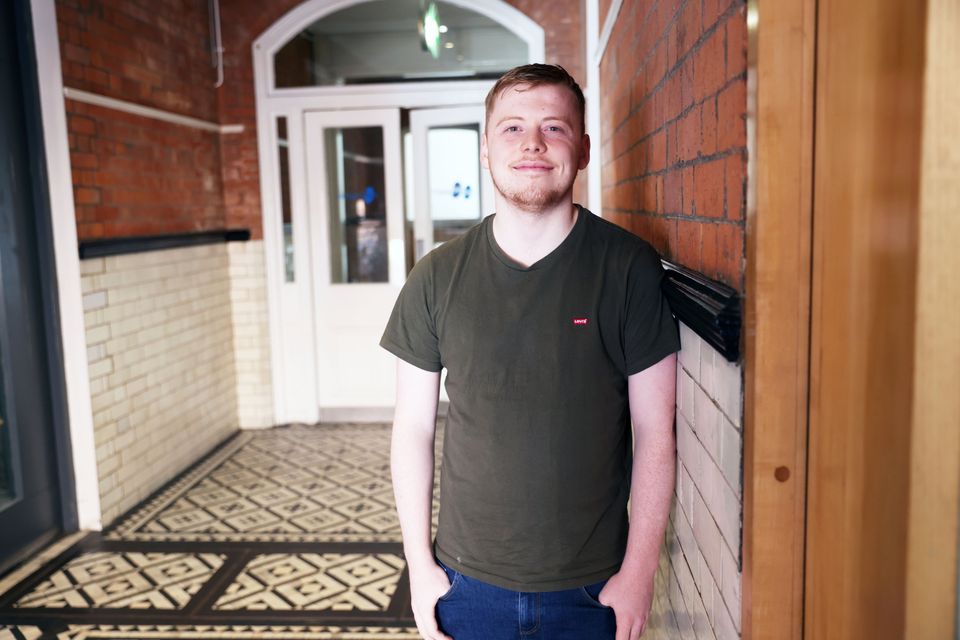The new president of the National Union of Students-Union of Students in Ireland (NUS-USI) may only have taken over the role a few weeks ago, but he’s already laid out his case for lowering the voting age.
Ben Friel believes a change in legislation could have a significant impact on the political landscape here and was buoyed to see political parties in Northern Ireland — with the exception of the DUP — back Tuesday’s Assembly motion calling on the government to bring the country into line with other devolved nations in allowing those over 16 to vote.
And he said he believes it’s a “really simple argument”.
“If you can get a job and pay taxes at 16, if you can join the military at 16, if you can drive on the roads at 17, then why can’t you vote on who makes the decisions on how that tax money you’re paying is used?” he argued, adding that his union will continue it’s long running campaign to have the voting age lowered in Northern Ireland.
“I think that’s only logical,” he added.
“I hear the argument that 16 and 17-year-olds don’t have experience, but that’s complete nonsense. The pattern of voting appears to be the same at 16-17 as it does for the rest of the population, so why are we cut off?
“We noted the Labour government did commit to lowering the voting age in their election manifesto,” he said.
“Unfortunately that wasn’t in the King’s Speech, so it doesn’t seem like that’s going to be happening immediately. We don’t think that’s good enough.
“The majority of parties here in Northern Ireland have signalled support for lowering the voting age. If you can vote for your devolved government at 16 in Scotland and Wales, then why should Northern Ireland be treated differently? And that extends to the UK General Election.
“It does have the potential to change the dynamics of politics, but that’s not why it should be done. It should be done as a right.
“It would increase political involvement. Some people don’t actually get to vote until they’re 24 depending on the election cycle. If those people are lost to the system early, disenfranchised, then winning them back is all the more difficult. We need to encourage people to be able to effect change in their own lives.”
Ben Friel, new president of the NUS-USI students Union. Picture by Peter Morrison
The Coleraine man, who has completed a software engineering apprenticeship through Queen’s University, is starting a two-year stint as the union’s president, and has now become the voice for over 130,000 students in the country.
“This is a place I didn’t see myself going,” he admitted, “but it was too good an opportunity to pass up. I wanted to do something to make a difference.”
While the campaign to lower the voting age here is gaining considerable momentum, with the DUP the only one party opposing a motion in the NI Assembly calling on the Labour Government to make the change in legislation, Ben admitted there are plenty more issues needing addressed during his term of office. Another right at the top of his priority list is housing.
“We completed our student housing survey last year and around half can’t live close to campus because of the cost and availability.”
That survey formed part of the union’s Cost of Living Report which showed that 56% of students were able to source accommodation close to their campus by the start of term.
It also showed that only a quarter of respondents had been able to pay rent or bills while 68% had seen an increase in housing costs.
“We have landlords taking advantage of students,” he said. “And purpose-built accommodation for students is popping up everywhere. The new student blocks do have a place, but the issue is being able to afford them. 90% of the students can’t.
“I lived in Stranmillis,” he added. “Clothes would be put in the wardrobe, but after a couple of weeks they’d be mouldy.
“Student housing is over-priced and if we want to attract more students we have to do something to make living near the campus more attractive and affordable.
“I was paying two to three times what my parents were paying on a mortgage and that was for a place I wouldn’t wish to bring them to.
“We would encourage councils and government to ensure students are able to afford to live in safe, healthy conditions. That should be a natural right, not an aspiration.
“Landlords know they have a constant turnover so there’s no incentive to maintain standards. There needs to be a government step in to provide some sort of safety net for students.
“Young people are being priced out of a freedom of choice over which education path they want to follow. We should not have to come from money to be able to make money.”
